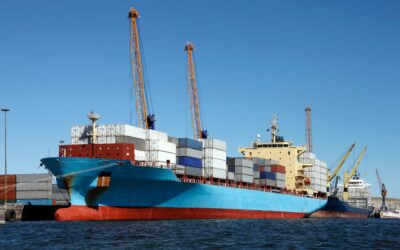A. Introduction
Following the Arab Spring in Libya in 2011, Libya has experienced a period of political uncertainty, chaos and civil war. The Libyan Political Agreement of 2015 and the Government of National Accord could not save Libya from division. However, recently there have been signs of movement towards a more promising and stable future. Some of these signs are related to the political and economic climate, while others are concerned with the legal and the regulatory developments, as put forth below.
B. Political and Macroeconomic Climate
Libya, after the rejection of the 2014 parliamentary election results by some political parties, underwent significant divisions between the west and the east, affecting major institutions, ending up with two governments, two audit bureaus and two national oil corporations. However, the appointment of the new government by the Libyan National Dialogue Forum in Geneva on 5th February 2021, by electing a National Unity Government, has taken the first step to put an end to division. The government’s mandate is the unification of the divided institutions, national reconciliation and presidential and legislative elections on 24th December, 2021. The National Unity Government should be able to achieve these targets as, the establishment of this government was strongly supported by the UN and the international community; this government is a direct product of a national dialogue between the major conflicting parties. On 10th of March Libya’s parliament has approved the interim government of national unity (“GNU”) which will be headed by Prime Minister Abdul Hamid Dbeibah. The elected interim government, replacing the UN-backed Government of National Accord (GNA), shall lead the country to the presidential and legislative elections scheduled for the 24th of December 2021. Those are good signs of political stabilization allowing Libya to return to unified governance, national dialogue and democratic structures essential to reform the country.
As for the macroeconomic climate, the Libyan economy suffered severely under the effect of the long-drawn-out civil war. The Economic and Social Commission for Western Asia (ESCWA) estimates the economic cost of the conflict in Libya from 2016 to 2020 could reach 491.2 billion Libyan dinars (equivalent to USD 364 billion using the official exchange rate of the Libyan dinar/US dollar) whereby the total cost of the conflict from its outbreak in 2011 to the present day can be estimated at 783.4 billion Libyan dinars (equivalent to USD 580 billion using the official exchange rate of the Libyan dinar/US dollar). 2020 was probably one of the most challenging years economically for Libya generating total fiscal revenues of only 23 billion Libyan dinar (LYD), some 40% of the total revenue earned in 2019 due to the harmful oil blockade imposed for almost nine months by the eastern-based Libyan National Army (LNA) cutting oil output to about 228,000 barrels per day less than a sixth of the 2019 levels. This negative economic trend was further exacerbated by the impact of the Covid 19 pandemic and an increase of conflict in early 2020. The recent civil war and the damage that occurred as a result has raised concerns about the scale of reconstruction needed. Alongside this, the financial resource required will be quite significant, in addition to the serious problem of inefficient and corrupt bureaucracy and very poor quality of services. Plans for reconstruction will, however, present an opportunity for foreign investors and construction contractors to step in. Consequently, work on some projects that were contracted by the previous regime has resumed working following the expiration of the war. With the signing of the cease fire agreement in October 2020, brokered by the UN among the various Libyan civil war factions, and the establishment of the interim government of national unity (“GNU”) political uncertainty has been substantially reduced paving the way for economic growth. Some economic forecasts expect Libya’s economy to rebound in 2021 by 20.9% because of a major boost in oil output and exports.
C. Legal and Regulatory Developments
The appointment of the new government and the realisation of the need to move forward towards re-building the country must be accompanied by laws and regulations that improve the conditions for new investments. The legal landscape that sets the scene currently is mainly dominated by two salient legal issues:
- Some regulations, for part of the Libyan legal community, are alleged to be unconstitutional, because they were issued by the General National Congress after it exceeded its official duration after the 2014 elections. In this regard, the Libyan Supreme Court’s resolution in 2016 was to postpone, for an unspecified period of time, their review of cases of unconstitutionality. Therefore, the legal status of such regulations remains untested.
- Before the Ministry of Economy’s decree No. 207 (2012) – on foreign participation in companies, branches and offices that represented foreign companies in Libya (Decree 207) – it was very clear that the Privatisation & Investment Board (PIB) is primarily responsible for the review of prospective investors applications under the Investment Law, whereas the Ministry of Economy (MOE) is primarily responsible for applications not made pursuant to the Investment Law. In post-revolution Libya, this line has been blurred and, in short, the MOE is now exercising more control over the PIB. As a result, the PIB has been instructed to apply the foreign ownership restrictions set out in Decree 207 when considering the application of the Investment Law.
Both legal issues are significant, caused uncertainty and established a legal environment that may cause a drawback in investments. However, there are some serious steps adopted that tip the scale towards more clarity, certainty and stability such as:
- The Libyan Central Bank (CBL) resolution (1) of 2020 (executed on 3rd Jan 2021) on approving a new exchange rate of Libyan Denar is a significant development, considering that the CBL had previously adopted parallel exchange rates, resulting in uncertainty and price fluctuations for long time. Consequently, this has resulted in providing certainty after years of confusion.
- While Decree 207 provides that non-Libyans can only hold up to 49% in a company in Libya, the Investment Law, provides that under certain circumstances (e.g. value of project) non-Libyans can own up to 100% in a Libyan company. In practice, the restrictions on the minimum number of shareholders that a Joint Stock Company requires and their maximum percentage shareholding (previously at 10% per person) has now been lifted, which makes market entry into Libya via a joint stock company more straightforward.
- The draft bill of the Electronic Transactions Law is another sign that there is serious intention to put things in order. The necessity for recognising and regulating the electronic transactions for goods and services has become crucial with the emergence of the COVID19 pandemic. This is a must, considering the fact that most transactions during the pandemic are conducted remotely.
Those examples are intended to correct and overcome the legal uncertainty and vagueness of the last ten years. Moreover, it is expected, that the government will, in the foreseeable future, adopt new models of contracting such as Public Private Partnership. This expectation is based on recent actions adopted by governmental bodies to overcome vagueness and uncertainty of the law. For example, Decree 207 has unified the commercial registrar and the investment registrar, consequently, there was confusion on where to register new investments. However, in practice the two remained separate, something that could be easily done due to the different nature of investments and other commercial activities such as registering companies or commercial agencies.
This intention, alongside the realisation of the serious need of development in light of the present severe economic conditions; the appointment of the new government that unifies the west and the east of the country, and consequently unifies State institutions, are plausibly the right formula for the establishment of the required environment for investors. All this will eventually reflect on the legal environment becoming more flexible and attractive to investors.
Moreover, the recent developments in the Egypt-Turkish relationship signal a change in the Egypt’s Libya policy. The Turkish Foreign Minister Mevlut Cavusoglu’s positive statements that “Turkey and Egypt may negotiate the demarcation of borders in the eastern Mediterranean if circumstances permit.” represent a change in the international regional dynamics, which means, in turn, more stability for Libya. Furthermore, the recent visit of the foreign ministers of Germany, France and Italy to Tripoli, alongside statements regarding reopining their embassies in Tripoli are significant marks that reiterate the view that the seed for stability has already been planted.
D. Conclusion
In conclusion, in light of recent developments; the realisation of the need to rebuild the country, and the reconsideration of the regulations concerned with conducting investements in Libya, it can be said that Libya has the potential to thrive. In the near future, provided that the progress referred to above continues at the same pace, Libya will improve for the better; it will flourish. Opportunities will present themselves due to the ongoing change in circumstances and climate and expected legislation. It can be expected that the international community and particularly the European Union will have a vital interest to support the stabilization and economic development of its southern neighbour Libya, not least for self-serving geopolitical interests. This will entail comprehensive and proactive support of the nation building and reconciliation process of the country. However, all this will only be possible if the donor countries deploy significant capital investments and provide significant funding in the country’s vital energy – oil and gas sector, rebuild its badly affected infrastructure and help to diversify the private sector of Libya’s highly oil and gas dependent economy.
The presupposition that Libyan Investment regulations are currently reconsidered with an attempt to pass investment-friendly regulations will furnish a fertile landscape for investors. These reforms will be covered and analysed in a following article once they take place.
E. How can we be of help?
Our team of international and local legal, risk and investment advisors have profound expertise in advising on strategic transactions in Libya and are well placed to help clients to enter into the Libyan market or to expand their operations within the country. Please get in contact with us.
Albudery’s Shariha
Founding Partner
Itkan Law Firm
albudery.shariha(at)itkan.ly
Gregor Pannike
Managing Partner
Agema Analysts
g.pannike(at)agema-analysts.com
Dr. Huda Tulti
Senior Legal Consultant
Itkan Law Firm
huda.tulti(at)itkan.ly







